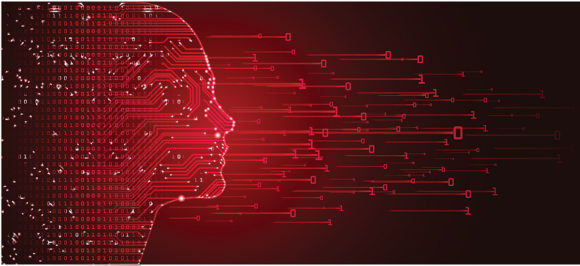I think the most considerable conflict that we as a society face, is deciding if we should trust AI. I would argue that AI posses a greater threat than actually having a positive impact on society.
Artificial intelligence(AI) may very well be the future. This statement is certainly true for China. The most shocking thing that I learned from In the Age of AI was that it can take people a total of 8 seconds to complete the process of getting a loan. It was also shocking to hear that the AI system that was used would assess customer's credibility by considering battery percentage and hesitation when answering questions. I think that if I was aware that an AI system was analyzing my response to questions looking into aspects like my battery percentage, I would feel extremely pressure. Firstly, my battery percentage is always low. This is not a result of lacking responsibility, my battery simply just needs to be replaced because it is fried. Also, when I feel like I am being monitored I have a tendency to act more suspicious. Unfortunately, I do not know why this occurs but I cannot help it. Due to these factors, I would know that I am credible but how would AI know that based off of battery and behavior patterns? This makes me wonder if AI would actually be able to accurately predict and interpret my behavior, as well as others.
As cheesy as the SyFy movies are, they contain ideas that remind us of the potential dangers of AI. Although AI systems have been programmed by humans, the goal is for AI systems to think for themselves. A positive aspect that was mentioned in the video, is that AI has the ability to come up with several alternative outcomes or solutions that humans have failed to think of. In the video, N.Y.U Professor Amy Webb states that AI systems "are able to think and imagine and see things, in ways that we never have before." She then suggests that AI could potentially lead us to solutions for major issues like climate change and cancer cures. In this sense, AI is welcomed for its unique thinking patterns. However, what if AI overpowers us? It may sound foolish yet we should be skeptical of the unintended consequences of AI, as every technology has them. For example, when cars were invented it made getting from two different places easier and faster; but no one accounted for the idea that automobiles would lead to immense air pollution that is deteriorating the ozone layer. What if AI develops a mind of its own? This theory is displayed by several films,most notably
Oblivion and Alien: Covenant. In both scenarios, a super computer decides that the best course of action for the human race is extinction. Now although both movies are hypothetical examples of the potential impacts of AI, it is not impossible for these events to occur. As pictured in the video, AI scientist Kai-Fu-Lee mentions that the more information a system is fed, the better it functions. What if the more AI learns about humans and their destructive exploitation of resources, the less favorable we become in its eyes? Authors Nick Bostrom and Luke Muehlhauser both stress the idea that AI may posses opposing goals and values that may not be "human-friendly." They also emphasize that fact that it would be nearly impossible to create an AI system with "common sense." Contrastingly, psychologist Steven Pinker believes that AI systems would be "peacefully" work alongside humans. However, he uses diction that suggests that harmful AI systems could still come to surface by using words such as "unlikely." This word-choice does not inspire a lot of confidence for someone who is for AI.
I fully believe that AI is the next our society's next big technological innovation. However, I suggest that we proceed with caution.

No comments:
Post a Comment